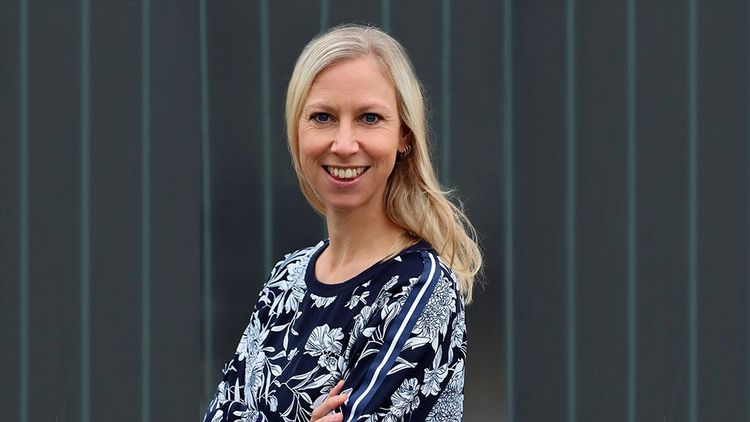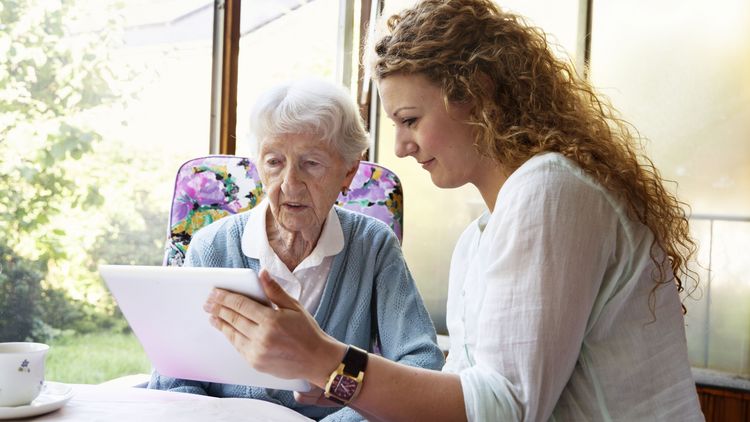Poor nutrition and a lack of exercise have a negative impact on health, especially as people age. A team of researchers led by nutritionist Dr. Rebecca Diekmann at the University of Oldenburg's School of Medicine and Health Sciences are developing an assistance system to help seniors make long-term changes in their everyday behaviour to maintain and even improve their quality of life. Diekmann's junior research group will receive approximately 1.8 million euros in funding from the German Federal Ministry of Education and Research (BMBF) over the next five years. Entitled Nutrition and physical function in older adults[AW1] , the group is based at the Department of Health Services Research at the University's School of Medicine and Health Sciences.
"The work of the new junior research group highlights all the aspects to be taken into account if we are to succeed in improving the quality of life of older people at the individual level. The BMBF's funding commitment acknowledges the role of this area of health services research and underscores its great importance for society," said Prof. Dr. Ralph Bruder, President of the University of Oldenburg.
Together with two research assistants and a study assistant, Diekmann will develop the assistance system "AS-Tra", which stands for "Assistance System for the Sustainable Improvement of the Nutritional and Mobility Status of Older Adults" under consideration of the Transtheoretical Model of Health Behaviour Change.
"Millions of people use fitness and health apps on their smartphones. However, seniors often have difficulties when it comes to accessing new technologies," says Diekmann. Yet, people in this age group have the biggest potential to improve their health and thus their quality of life through a balanced diet and regular exercise, she explains. Diekmann has already conducted research on technical assistance systems for older adults in several projects. Building on this experience, she now aims to develop the new assistance system in collaboration with test persons, and then investigate its benefits. Several partners, including the University Clinic for Geriatrics at the Klinikum Oldenburg, the Oldenburg Rehabilitation Center, the Professional Association of Oecotrophologists (VDOe) and a major German health insurance company are also involved in the study.
The app will be designed to cater to the special needs of older adults. Unlike most nutrition apps, the focus is not on weight reduction but on ensuring an adequate supply of the necessary nutrients. The researchers are also studying how to minimize the obstacles older people face when using new technologies. Another special emphasis is tailoring the app to the needs of individual users. It is therefore being developed on the basis of the transtheoretical model, which describes the different stages of behavioural change, from the precontemplation stage in which there is no intention to change a behaviour to the maintenance stage in which people work to maintain a positive behaviour. "If we know which stage of behavioural change a user is in, we are better able to customize the content of the assistance system to their individual needs," Diekmann explains.
Multifunctional measuring and training points will be set up to supplement the app at several sites in the city which are easily accessible for the test persons. At these points, which will be housed in special containers, they will be able to track their progress in terms of physical function, including strength, endurance and balance, and also receive instructions for physiotherapeutic exercises – all without any assistance from others. Photoelectric sensors, depth imaging cameras and pressure sensors will record their performance when carrying out specified mobility tasks. Participants will also answer questions about their diet here. Using the data thus acquired, the researchers will be able to perform their own assessments and at the same time test different forms of self-assessment at the stations. With this system, a test person's nutritional and physical activity status can be monitored without the need for medical professionals (who are in short supply) to carry out all the measurements. The data gathered at the training points can also be transferred to the app, meaning that the user can share data on their nutritional and physical activity status with their general practitioner or therapist and thus receive more targeted and personalized treatment and advice.
Dr Rebecca Diekmann has been conducting research in Oldenburg since 2013, first at the University Clinic for Geriatrics at the Klinikum Oldenburg, and since 2016 at the University's Division of Assistance Systems and Medical Device Technology, led by Prof. Dr. Andreas Hein, where she heads her own research group. She previously worked at the University of Bonn and the University of Erlangen-Nuremberg, where she received her PhD in 2011.
With junior research groups the BMBF supports highly qualified scientists on the path to obtaining a professorship or other leading positions in academia. By providing funding to outstanding researchers in the area of healthcare the Ministry aims to improve the healthcare system.





